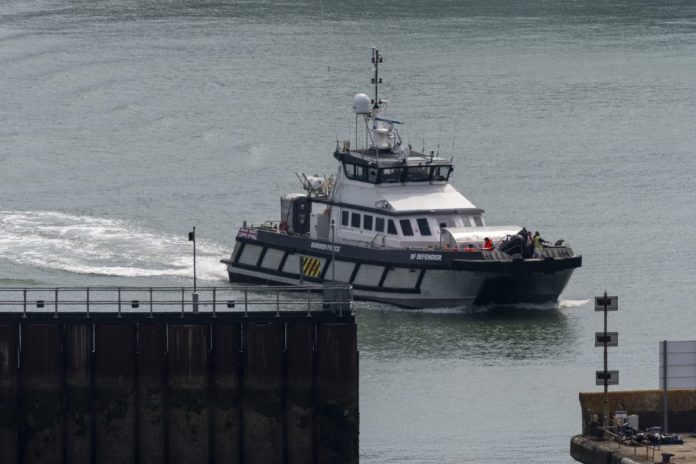Support truly
independent journalism
Our mission is to deliver unbiased, fact-based reporting that holds power to account and exposes the truth.
Whether $5 or $50, every contribution counts.
Support us to deliver journalism without an agenda.
The number of migrants crossing the English Channel in small boats fell by almost a third in Rishi Sunak’s last year as prime minister, piling pressure on Sir Keir Starmer to continue the downward trend.
In the year to June 30, days before the general election, there were 31,493 arrivals in the UK via small boats. It marked a 29 per cent fall on the year before and a slight decrease from the same period two years ago.
Coming just days after Yvette Cooper fleshed out Labour’s alternative to the Rwanda deportation policy, which would have sent some asylum seekers to the east African nation, the figures will add to the pressure on the government to bring the numbers down further.
Responding to the fall, Tory leadership contender and shadow home secretary James Cleverly said: “The actions I took as Home Secretary are working… that’s the inheritance I left Labour.
“But they’re undoing all of this progress. They have ditched our deterrent, have no clear plan to smash the gangs, have nowhere to send failed asylum seekers who they can’t return, have failed to hire anyone to run their phantom border command, and are already planning to roll over for the EU and open our borders.”
The Home Office also said the average number of people per boat increased over the year, highlighting the growing risk being taken by the smuggling gangs responsible for the trade. There were 51 people per boat, compared with 44 per boat a year earlier and 10 per boat in 2019, with officials growing increasingly concerned about overcrowded boats raising the risk of deaths in the Channel.
But despite the fall in the past 12 months, Home Office data for the first six months of 2024 shows that the number of small boat crossings was a fifth higher than the same period in 2023.
On Wednesday, Ms Cooper announced a series of measures aimed at tackling illegal migration and improving border security, including a pledge to return the number of failed asylum seekers sent back to their home countries to 2018 levels over the next six months, meaning more than 14,000 deportations by the end of the year.
However, the 14,000 figure is far lower than the 45,000 returned in 2010 under the former Labour government and less than the 19,000 migrants who have arrived in Britain by crossing the Channel in small boats so far this year.
The government also revealed plans to increase detention capacity with 290 beds at two immigration removal centres, Campsfield in Kidlington, Oxfordshire, and Haslar in Gosport, Hampshire. But these plans are being criticised as a backwards step as both sites were plagued with problems before they shut in 2019 and 2015 respectively, including hunger strikes and suicides.
Thursday’s figures highlighted the challenge Ms Cooper will face to boost the number of small boat migrants to be returned to their home countries. Between 2018 and June 2024, there were 3,788 returns of small boat arrivals, just 3 per cent of overall arrivals. The vast majority of these were Albanians after Britain and Albania signed a joint returns agreement.
Labour has also promised as part of its plans to speed up the processing of migrants, which the Conservatives have warned will lead to tens of thousands of migrants being granted asylum.
Almost all (99 per cent) of those who arrived by small boats in the year to June claimed asylum in the UK. And the grant rate for those arriving in small boats who claim asylum was 71 per cent between 2018 and June 2024. But, of all small boat asylum claims made in the past year, 96 per cent remain undecided, the figures showed.
The Home Office said there are 76,268 people who have waited more than six months for a decision on their asylum claim, with charities calling for those people to be allowed to work.
Refugee Action said the Labour government could improve people’s lives, increase community cohesion and boost local economies by giving people seeking asylum the right to work.
Chief executive Tim Naor Hilton said: “People stuck in the system have valuable skills, education and experience that they are desperate to use but are instead forced into dependency by this self-defeating policy.
“Change is backed by business, MPs from across the political divide and more than four in five members of the public. Lifting the ban on work is common sense.”
As well as the lengthy waits for asylum decisions to be processed, the Home Office figures laid bare the spiralling costs of the system, which have jumped from £568m in 2011 to £4bn in 2023, while the productivity of staff has fallen drastically.


